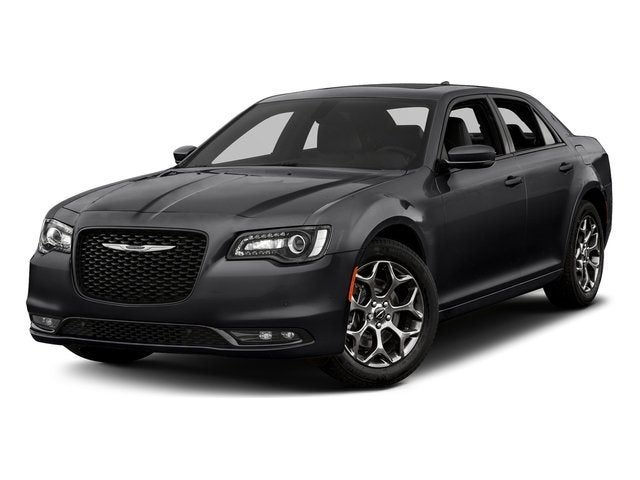The car buying process can take anywhere from a few hours to several weeks. The duration depends on various factors, including decision-making speed, financing approval, and vehicle availability.
Purchasing a vehicle is a significant decision for many, involving a series of steps that can influence the total time commitment. From initial research to visiting dealerships, test driving, negotiating, and finalizing financing, each aspect plays a role in the timeline.
Quick decision-makers with pre-approved financing can expect a speedy transaction, possibly within a single day. Conversely, those comparing multiple options or awaiting loan approval might extend the process to several days or weeks. The agility of the dealership can also impact this timeframe, as prompt responses and efficient paperwork processing expedite the purchase. Meanwhile, potential buyers should plan for a well-paced journey, ensuring a choice that accommodates both their preferences and budget.

Credit: www.caranddriver.com
Pre-purchase Research
Deciding on a car type and model requires careful consideration to match your lifestyle and budget. Start by assessing your needs, such as passenger space, fuel efficiency, and performance. Factor in maintenance costs, safety ratings, and the availability of features you desire.
Exploring financing options early on is essential, as this will determine your budget and influence your choice between leasing or buying. It’s advisable to compare rates from multiple lenders, and consider pre-financing through a bank or credit union which might offer competitive interest rates.
Finally, evaluating new versus used cars is a critical step. New cars offer the latest technology and full warranty but depreciate quickly. Used cars can be more affordable with slower depreciation but may have out-of-warranty risks. Certified pre-owned (CPO) programs offer a middle ground with inspected cars and a manufacturer’s warranty.
The Search For Your Perfect Car
Finding the perfect car can be a thrilling experience, yet time-consuming. Initially, you’ll likely sift through a plethora of online listings, spending hours comparing makes, models, and prices. Simultaneously, visiting local dealerships can offer the chance to see potential cars in person. This stage’s duration varies, as some buyers may stumble upon their ideal vehicle quickly, while others may take weeks to find the right match.
The next phase involves contacting sellers to inquire further about the cars of interest. It’s essential to ask pertinent questions to gauge the vehicle’s condition and history before arranging scheduling viewings. This step could range from a single day to several, depending on response times and your availability.
Lastly, the test driving and vehicle inspection process is critical for assessing the car’s performance and ensuring a sound investment. This often necessitates coordination with either private sellers or dealership staff, and may include a professional mechanic’s inspection to confirm the vehicle’s condition. This conclusive stage can span a few hours to a couple of days, concluding with the final decision on the purchase.
Negotiating And Finalizing The Deal
The car buying process can often hinge on effective negotiation. As you sit down with the dealer, the first step is usually to discuss the price and payment plans. Be prepared to talk finance, as dealerships typically offer a range of options including loans and leasing agreements. Don’t hesitate to negotiate for a better rate, as even a small percentage point can lead to significant savings over time.
For those with an existing vehicle, trade-in options provide an opportunity to reduce the purchase price. It’s important to have an idea of your car’s value ahead of time; various online resources provide estimates that can arm you with knowledge during the trade-in discussion.
Finally, consider the value of extended warranties and additional features. These options can offer peace of mind or greater convenience, but they also contribute to the overall cost of the vehicle. Be sure to understand what is included in the warranty and ask about the price of any extra features that interest you.
Paperwork And Bureaucracy
Understanding the title transfer and registration process is crucial during a car purchase, as it legally shifts ownership from the seller to you. Typically, the buyer must provide a valid form of identification, proof of purchase, and complete the necessary Department of Motor Vehicles (DMV) paperwork. This process can vary by state and may require additional documents like a smog certificate.
The step of obtaining loan approval and payment paperwork encompasses various financial checks and document signings. Prospective car owners must submit applications to lenders, who then review credit history and assess loan affordability before granting approval. Finalizing the sale involves signing the contract, which outlines the loan’s terms, and processing the payment to the dealership or private seller.
Insuring your new vehicle is a legal requirement and should be in place before you drive the car off the lot. Insurance options should be explored in advance to ensure coverage meets personal needs and compliances with state laws. Proof of insurance is typically requisite for completing the car buying transaction.
Taking Possession And Post-purchase Steps
Taking possession of a new car involves a final inspection to ensure everything is in working order. Dealers perform a comprehensive check and execute detailing to guarantee the vehicle shines before handover. Clients should expect a thorough cleaning, waxing, and polishing, creating an impressive first impression.
Depending on the purchase agreement, you might pick up your new car from the dealership or opt for vehicle delivery. Convenience and customer preference dictate the chosen method. Upon receiving your vehicle, post-purchase maintenance becomes integral. Following the manufacturer’s maintenance schedule ensures peak vehicle performance and longevity. Adherence to regular check-ups, oil changes, and tire rotations will keep your car in top condition.
Frequently Asked Questions On How Long Does Car Buying Process Take
What Is The Average Time To Buy A Car?
The average time to purchase a car typically ranges from 2 to 6 weeks. This includes researching, test driving, and finalizing the paperwork.
Can Pre-approval Speed Up The Car Buying Process?
Yes, obtaining pre-approval for a car loan can significantly expedite the buying process, as it reduces the time spent on financing at the dealership.
What Factors Affect Car Buying Duration?
The duration of the car buying process can be impacted by factors such as loan approval, vehicle availability, personal schedule, and negotiation time.
How Long Does Car Delivery Take Post-purchase?
Car delivery time post-purchase can vary from immediately to a few weeks, depending on the dealership’s location, inventory status, and whether the car is custom-ordered.
Conclusion
Navigating the car buying journey varies in duration, influenced by research, financing, and decision-making. Expect a few hours to several weeks. Stay informed, prepared, and proactive to streamline the process. Your new car awaits, so start your engines on this exciting venture with confidence and clarity.

